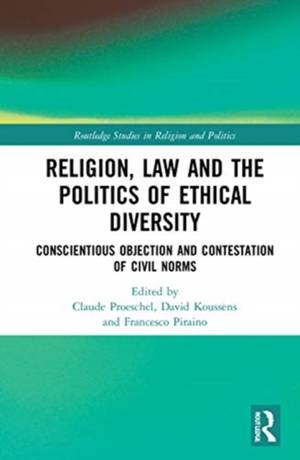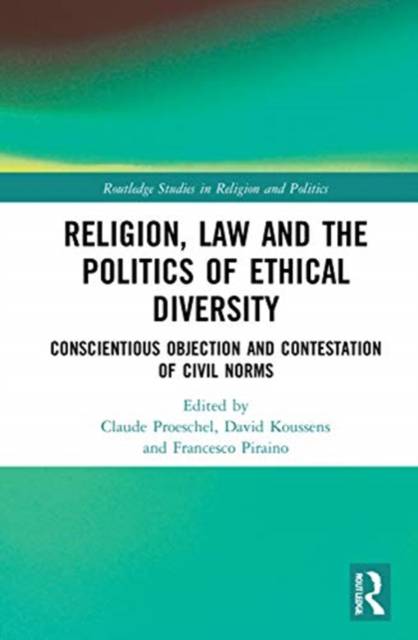
- Retrait gratuit dans votre magasin Club
- 7.000.000 titres dans notre catalogue
- Payer en toute sécurité
- Toujours un magasin près de chez vous
- Retrait gratuit dans votre magasin Club
- 7.000.000 titres dans notre catalogue
- Payer en toute sécurité
- Toujours un magasin près de chez vous
Religion, Law and the Politics of Ethical Diversity
Conscientious Objection and Contestation of Civil Norms
182,45 €
+ 364 points
Description
This book provides a multidisciplinary and comparative look at the contemporary phenomenon of conscientious objection or contestation in the name of religion and examines the key issues that emerge in terms of citizenship and democracy. These are analysed by looking at the different ways of challenging or contesting a legal obligation on the grounds of religious beliefs and convictions.
The authors focus on the meaning of conscientious objection which asserts the legitimacy of convictions - in particular religious convictions - in determining the personal or collective relevance of the law and of public action. The book begins by examining the main theoretical issues underlying conscientious objection, exploring the implications of the protection of freedom of conscience, the place of religion in the secular public sphere and the recognition and respect of ethical pluralism in society. It then focuses on the question of exemptions and contestations of civil norms, using a multidisciplinary approach to highlight the multiple and diverse issues surrounding them, as well as the motives behind them. This book will be of great interest to scholars, specialists and graduate and advanced undergraduate students who are interested in issues of religious diversity. Researchers and policymakers in think-tanks, NGOs and government units will find the volume useful in identifying key issues in understanding the phenomenon of conscientious objection and its implications in managing ethical diversity in contemporary societies.Spécifications
Parties prenantes
- Editeur:
Contenu
- Nombre de pages :
- 198
- Langue:
- Anglais
- Collection :
Caractéristiques
- EAN:
- 9780367673772
- Date de parution :
- 31-03-21
- Format:
- Livre relié
- Format numérique:
- Genaaid
- Dimensions :
- 156 mm x 233 mm
- Poids :
- 430 g






